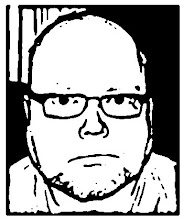I finished reading the whole New Testament last week. So it took me about three weeks to read it and absorb it in as a whole body of work. It is quite impacting to read the whole Text straight thru and reading everyday and not stopping. It puts a great deal of perspective in the whole deal and brings some things home. One thing that I was taught, and had always assumed was the truth, was that Jesus was separated from God on the cross. I had never second guessed this before until it was mentioned on a lesson I heard on a website that somebody had given, and when he said that, after I just read the whole New Testament, it sounded wrong. So I asked him to provide the scripture that gave him that conclusion. As it turns out, the bible doesn’t say that Jesus was separated from God on the cross, but if you look at some different scriptures, you come to that conclusion. You can find in scripture that Jesus became sin for the world. You can also find one that says sin separates us from God. And then there is that statement from Jesus on the cross, “My God, my God, why have you forsaken me?”
Well, it turns out that the scripture used for sin separating becoming sin for the world, also can be interpreted as Jesus became the “Sin offering” for the world. Then, elsewhere, John the Baptist calls Jesus the Lamb of God (as does other parts of the bible, including the book of Revelation). Well, to take the whole perspective that Jesus became our Passover Lamb, permanently (Hebrews), then it goes to say that he was just the sacrifice for sin, and not sin. In fact, the bible says that Jesus fulfilled the Law of God, but then it says that the law is what defines sin, but that Jesus freed us from the law when He died on the cross, thus fulfilling the Law (Old Testament). Anyway, Jesus also told the thief on the cross that he would be in Paradise with Him. How did Jesus go to heaven if he was separated from God? Plus, when he said that phrase about being when Jesus says, “…why have you forsaken me?” He is actually fulfilling Psalm 22 which is being fulfilled as he quotes it. I believe that it was a statement of faith. I believe that when He was on the cross He was obeying the will of God, and in fact never sinned (Philippians 2).
Anyway, there are several other matters that I have come to conclusions with. One of which is that I don’t think that ANY of the book of Revelation has to do with ANYthing happening today, or anything past early church history. I believe it was probably completely fulfill by the end of the mid-second century. I think that it is similar to the book of Daniel, where if you look back on history, you can tell that the prophecies we from God and glorify God in his divine abilities and nature. There is a terrific book out there called “The Kingdom of Heaven” by F. W. Mattox that I highly recommend. He is a Mainline church of Christ person, but the history in his research is extremely interesting to us Christians (or at least it should be!).
Another conclusion I have made, is that the Beatitudes in Matthew 5-7 are addressed to first century Palestinian Hebrews. So often, we look at the scripture that says, “You are the salt of the earth…” and as Christians, we think that He is addressing us. But in fact, I think he was talking to the Jews. The Jews were the Salt of the earth, and salt, losing its flavor is referring to the Jews loosing their righteousness, or something like that. The “flavor” being the fact that they have the Law, and no other nation did. It is congruent with the rest of the stuff being said there. For example, them being the light of the world giving light to the whole house on the hill. Let your light shine before men…then he goes straight into, “Do not think that I came to destroy the Law or the Prophets. I did not come to destroy, but to fulfill.” Oh, did you say that the Law and the Prophets were the topic? Oh, I see, we are talking about the Law and Prophets (the Hebrew bible!). This is further confirmed the further you read right there. Actually, right after that he reinstates the Law, but with the heart in mind. It is quite a thing.
Anyway, I have also started reading a book called the Poet’s Tutor or something like that. It basically quotes the greatest twenty poets of American History and their poetry; about 20 poems each, including the long ones. It is a great book that came in with a group of books that my wife bought me.

